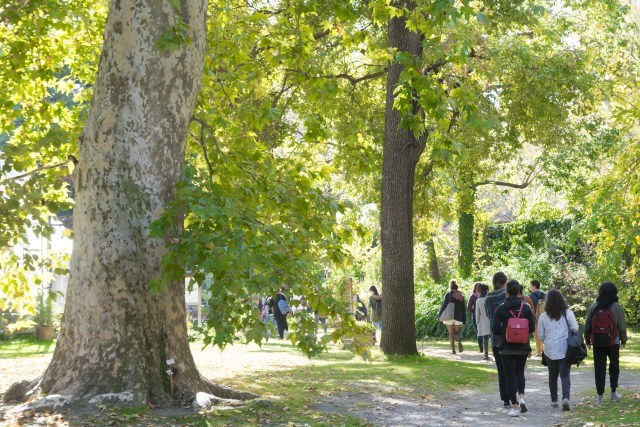The University of Bologna is the most sustainable in Italy. This is certified by the new QS Sustainability 2024 ranking, which assesses how universities tackle significant environmental, social and governance issues encompassing 1,403 universities all over the world.
The University of Bologna has made significant progress compared to the previous year, moving from the 191-200 range to the 108th position worldwide. In the European context, it has gained 35 positions, reaching the 49th position. In Italy, it has moved from the 6th to the 1st position.
Among the main indicators that make up the ranking, the University of Bologna is ranked 70th worldwide for "Social Impact". This result acknowledges the University’s great public effort in promoting principles of equity, sustainability, inclusion, and respect for diversity in every field.
Notably, it holds the 56th position globally for "Knowledge Exchange", reflecting its commitment to knowledge transfer and collaboration with other institutions and organisations. Additionally, the 80th position on "Impact of Education", which assesses commitment to ensure quality education and freedom in academic research. Additionally, the university ranks 80th in "Impact of Education", underlining its dedication to ensuring quality education and fostering freedom in academic research.
In terms of environmental impact, it is worth noting the 111th position for "Environmental Education", which evaluates the educational offer on environmental sustainability issues and the impact achieved in terms of reputation. Additionally, it holds the 127th position in "Environmental Research" assessing the impact of scientific research in relation to the UN Sustainable Development Goals on clean energy, sustainable cities, responsible consumption, climate action and the protection of marine and terrestrial ecosystems.
The Rector Giovanni Molari stated: "This Italian record is a gratification for what we have done so far in terms of sustainability. However, we still have a lot of work to do, and it’s time to intensify our efforts. Our sense of social responsibility, our technical and scientific skills, and our duty towards the future of the University of Bologna drive us to adopt a more informed, aware and responsible approach to energy usage. This is why the University must become an 'open laboratory' to experiment new systems and increase sensibility towards energy and the environment".
These flattering results precede the presentation of the University of Bologna's first Energy Plan: an investment of €60 million planned from now until 2030. The University aims to efficiently improve the use and production of energy and to strengthen its actions for social, economic, and environmental sustainability.
This plan encompasses an area exceeding one million square meters. By 2025, all diesel and oil-fired power plants should be eliminated and by 2030, all power plants should be electrified, by replacing gas boilers with heat pumps. New photovoltaic systems should be installed, to produce up to 17% of the university's annual energy needs by 2027. All traditional lighting systems should be replaced with LED fixtures by 2026. To minimise waste, the entire university community, starting with students, should contribute to responsible behaviour by reporting issues through a dedicated app, triggering targeted and timely interventions.

